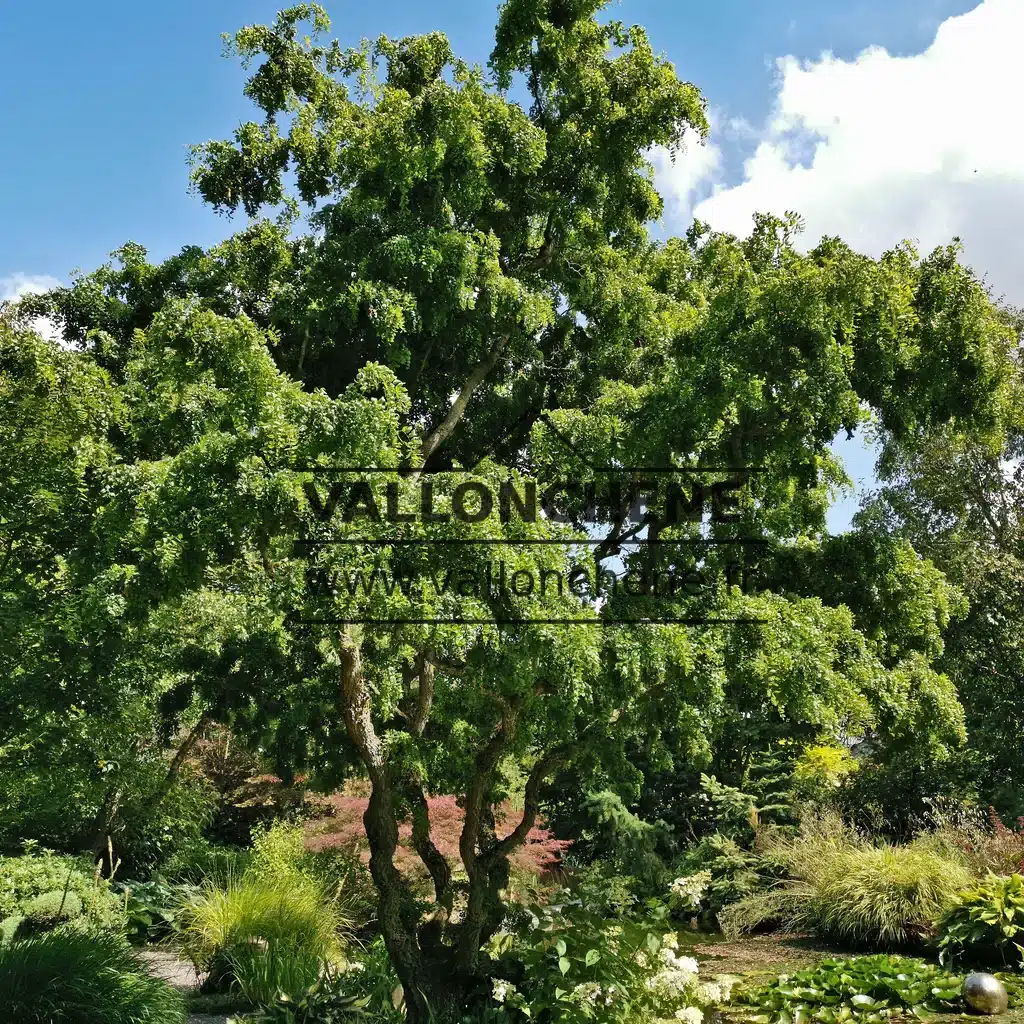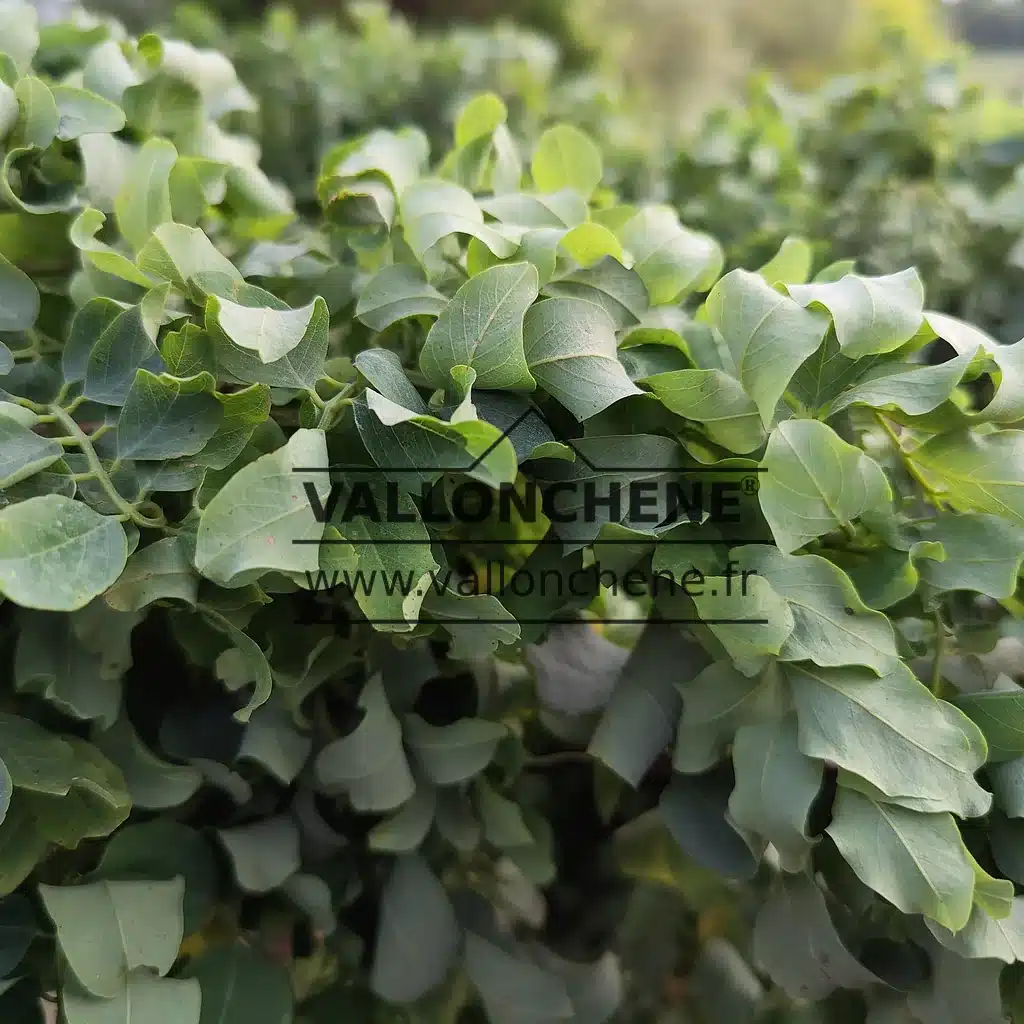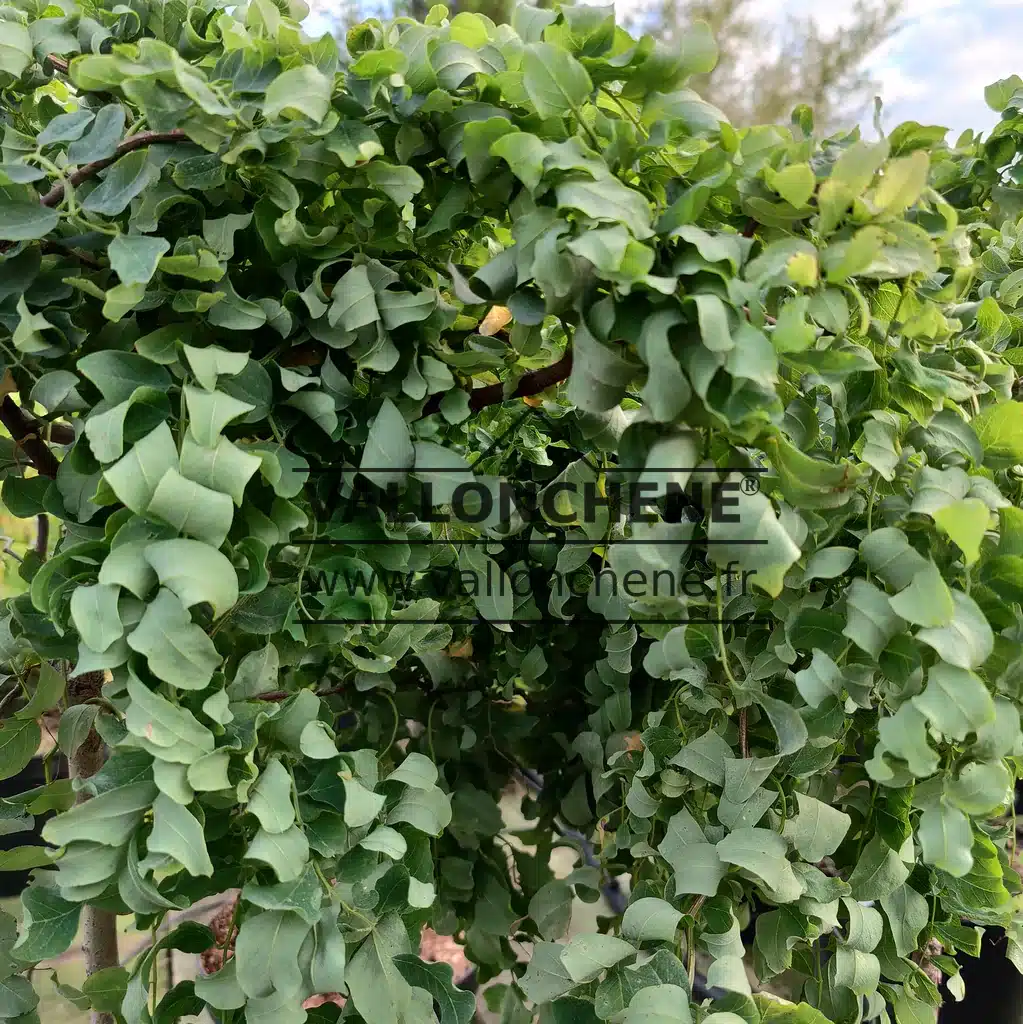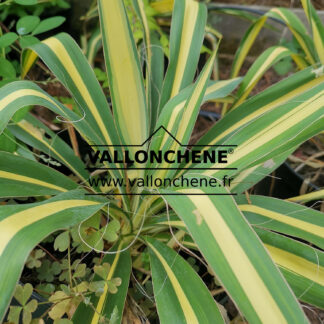Description
The Plant
Are you looking for a tree that is as decorative as it is durable for your garden? Look no further than ROBINIA pseudoacacia ‘Twisty Baby’. This true, very recent horticultural gem is sure to attract attention. Indeed, this black locust is distinguished by its very fine curly foliage of a tender green which takes on shades of gold in the fall. This particularity gives it an airy lightness and a soft texture which invites contemplation. But the real asset of this tree lies in its trunk and its branches with tortuous wood. They create a striking and resolutely original look. This characteristic is accentuated when it is pruned for transparency. That pruning gives the tree an artistic dimension that is sure to capture your attention. Whether in summer, when its fragrant white flowers bloom in graceful clusters, or in winter, when its bare branches reveal the complexity of their structure, this black locust tree retains its undiminished appeal. Thanks to its slow growth, this tree fits perfectly into small gardens. It requires minimal maintenance. In addition, it is remarkably resistant to cold and drought (once well established). This makes it an ideal choice for harsh climates. To ensure a graphic effect from the first years, our R. pseudoacacia ‘Twisty Baby’ plants are grafted onto a small stem. This exceptional tree will beautify your garden and provide you with a source of delight all year round.
How to plant and care for ROBINIA pseudoacacia ‘Twisty Baby’?
Planting
This black locust tree adapts to various environments, thus offering great freedom in its installation in your garden.
In the ground or in a pot: the choice is yours!
This exceptional tree can flourish in the ground, whether in a bedding or alone. It will bring a touch of character to your outdoor spaces. You can also opt for growing in pots or containers, ideal for decorating your terrace or balcony.
Sun or partial shade: it adapts to your preferences
ROBINIA pseudoacacia ‘Twisty Baby’ appreciates sunny situations, but is also tolerant of partial shade. So plant it according to your desires and the layout of your garden.
Wet, dry or intermediate soil: this plant is not difficult
Whether your soil is damp, moderately damp or dry, ROBINIA pseudoacacia ‘Twisty Baby’ will cope. It also does not make whims regarding the pH of the soil, accepting acidic as well as neutral or calcareous soils.
Light, normal or heavy soil: no constraints
The flexible nature of ROBINIA pseudoacacia ‘Twisty Baby’ allows it to grow on soils of varied texture. Whether light, normal or heavy, this tree will not be demanding.
For proper preparation of the pot or planting hole, we have developed specific instructions available here.
Care
This tree requires little attention to give you years of splendour. A simple pruning for transparency in March, before vegetation resumes, is enough to accentuate its naturally outstanding shape and preserve its graphic beauty. To optimize watering for your Robinia pseudoacacia ‘Twisty Baby’ and reduce water consumption, don’t hesitate to consult our dedicated tips here. You will find valuable advice on how to water your tree wisely and ecologically.
History and Origin
R. pseudoacacia ‘Twisty Baby’, also known as dwarf twisted black locust, is a recent horticultural variety of ROBINIA pseudoacacia, a tree native to North America.
An American creation
The story of R. pseudoacacia ‘Twisty Baby’ began in 1996 in the United States. It was on this date that an American horticulturist discovered a black locust tree with a unique genetic mutation: its branches and trunk developed in a twisted and sinuous manner.
Intrigued by this particularity, the horticulturist decided to graft this mutation onto a rootstock to reproduce it and create a new variety. ‘Twisty Baby’ was thus born.
A quick introduction to Europe
Since its creation, ROBINIA pseudoacacia ‘Twisty Baby’ has aroused keen interest among collectors of ornamental plants.









Reviews
There are no reviews yet.